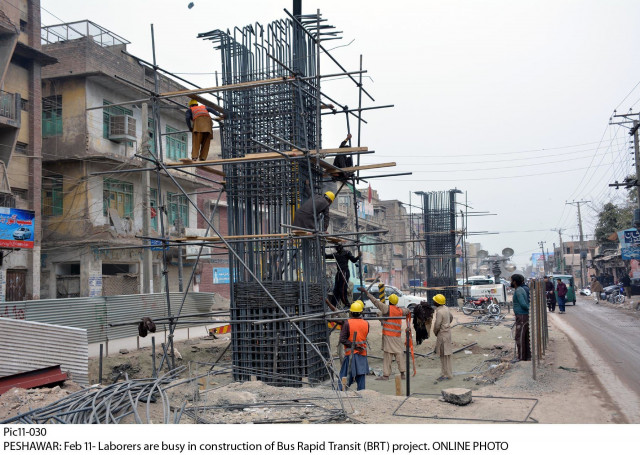Planning ministry wants Rs1.1 trillion as development budget
The President’s Secretariat would get roughly Rs1 billion and the PM Office budget will also be close to Rs1 billion

PHOTO: ONLINE
The Ministry of Planning, Development and Reform is not satisfied with the finance ministry’s decision to allocate only Rs800 billion for Public Sector Development Programme (PSDP) for fiscal year 2018-19. It has sent a communiqué to the finance ministry, demanding Rs1.1 trillion instead, according to sources in the ministry.
Education: CERF approves funding of $2.5m for children education
The finance ministry was of the view that the outgoing government should not allocate funds for new development schemes and this should be left to the next government, said officials. The planning ministry wanted that at least Rs200 billion should be reserved in the new budget so that the next government may finance projects of its choice, they added.
The finance ministry’s insistence to allocate only Rs800 billion that includes budget for defence-related activities would create problems for those ministries that do not have a say at the highest level in the power corridors, said sources in the Ministry of Planning.
Most of the Rs800-billion indicative development budget would go to the National Highway Authority (NHA), Water and Power Development Authority (Wapda) and other priority areas of the government, they added.
The indicative development budget ceiling is 20% less than outgoing fiscal year’s Rs1.001 trillion worth of development budget.
The Rs800 billion ceiling is not even sufficient to what the NHA alone has demanded for the next year. The NHA has proposed Rs823 billion for 103 ongoing and new projects in PSDP 2018-19 including Rs471.6 billion local and Rs351.5 billion foreign components. The authority has sought Rs326 billion for 14 China-Pakistan Economic Corridor (CPEC)-related road projects.
The formal process to approve financial year 2018-19’s development and recurrent budgets began on Monday with the first meeting of the Priorities Committee - the inter-ministerial body responsible to gauge these departments’ needs. On its first day, the committee reviewed the development and current expenditure needs of 17 government ministries and departments.
The secretaries of the Ministry of Finance, Economic Affairs Division and Ministry of Planning sit in the Priorities Committee. However, their representatives attended the meetings on Monday.
The Priorities Committee reviewed the budget requirements of the Cabinet Division, Inter Provincial Coordination Ministry, Ministry of Education & Professional Training, Ministry of National Health Services, Higher Education Commission, Prime Minister’s Secretariat, President’s Secretariat, Pakistan Atomic Energy Commission, Pakistan Nuclear Regulatory Authority, Ministry of Foreign Affairs and Aviation Ministry.
The government has indicated roughly Rs350 billion development and recurrent budgets for these ministries and bodies for next fiscal year, said the sources. About Rs92 billion has been indicated for current and development budget of the Ministry of Education. The HEC could be given Rs89 billion for current and development purposes. The Cabinet Division may get over Rs39 billion, mainly for current spending. The Ministry of Foreign Affairs budget could be given around Rs18 billion.
The Priorities Committee does not discuss the defence budget that is decided at the level of GHQ and the finance minister. The sources said that for the next fiscal year the defence budget will be roughly Rs1 trillion. However, the Ministry of Defense is seeking additional finances for replacing various types of equipment for the armed forces, the sources added.
About 35% of the defence budget would go for employees-related expenses, about one-fourth for operating purposes, about 26% for creating physical assets and roughly 14% of the proposed defence budget would go for civil works, said the sources in the finance ministry.
Countdown of National Assembly begins
The President’s Secretariat would get roughly Rs1 billion while the Prime Minister’s Office budget will also be close to Rs1 billion in the next fiscal year, said the sources.
The Priorities Committee places its recommendation on development budget in front of the Annual Plan Coordination Committee (APCC), which is headed by the Planning Commission deputy chairman and has authority to make changes. The APCC then gives its proposals to National Economic Council, which is headed by the prime minister and has representation of all the federating units.
The next year’s budget will be announced on April 27.
Published in The Express Tribune, April 3rd, 2018.
Like Business on Facebook, follow @TribuneBiz on Twitter to stay informed and join in the conversation.



















COMMENTS
Comments are moderated and generally will be posted if they are on-topic and not abusive.
For more information, please see our Comments FAQ